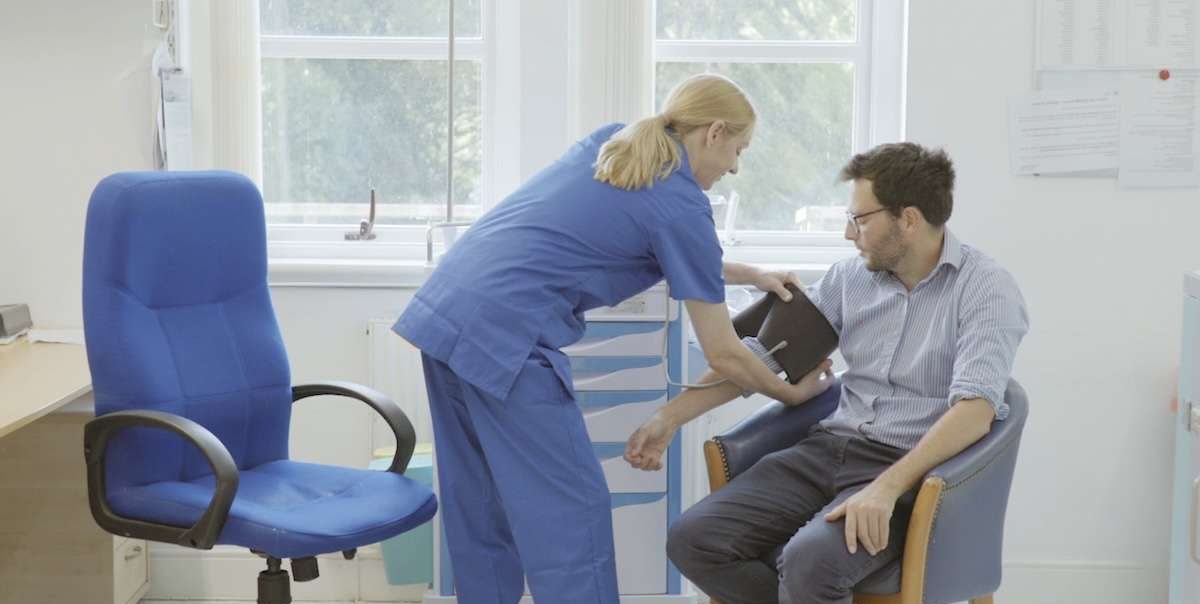
Residential Oxycodone Detox Treatment
At Castle Craig, we specialise in medically managed inpatient oxycodone detox and long-term recovery. Our private clinic in the Scottish Borders countryside offers a safe, structured environment for detoxing from prescription opioids like oxycodone. Patients benefit from 24/7 medical supervision, a team of addiction specialists and evidence-based treatments designed to address both physical and psychological withdrawal symptoms. With our whole-person approach and tranquil setting, we help individuals begin their recovery with dignity, care and expert support.
In this article, we’ll explain what to expect from medical oxycodone detox, including answers to common questions such as how long it takes to detox from oxycodone, how long oxycodone withdrawals last and how to taper off oxycodone safely. You’ll also find information on oxycodone detox symptoms, timelines, medications that may be used and what happens during the different stages of detox from prescription drugs. To find out more about our inpatient oxycodone rehabilitation treatment, call us on 01721 546 263 today – we’re here to help you.
What is Oxycodone Detoxification?
Oxycodone or opioid detoxification is the process of clearing opioids from the body safely after prolonged use. It allows the system to adjust to functioning without the substance and is often the first step in treating oxycodone addiction.
Oxycodone is found in branded medications such as OxyContin and Percocet (which contains oxycodone plus acetaminophen), both of which can lead to physical dependence. Structured detox helps to manage withdrawal symptoms safely and prepares patients for further treatment and oxycodone rehabilitation.
What is a Medically Managed Oxycodone Detox?
A medically managed detox for oxycodone involves 24/7 care from clinical professionals who monitor withdrawal symptoms and can administer supportive medications where required. This type of detox is designed to ensure patient safety and comfort throughout the process.
Doctors may use medications to reduce cravings and ease symptoms, helping to prevent complications during oxycodone detox. This approach can be beneficial for people experiencing moderate to severe oxycodone withdrawal symptoms.

Start Your Recovery at a Residential Rehab Today
Difference Between Medically Managed and Medically Supervised Oxycodone Detox
Medically managed detox is typically more intensive than medically supervised detox. It includes round-the-clock clinical oversight, tailored medication plans and immediate intervention if complications arise.
Medically supervised detox may involve less monitoring and can be suitable for milder withdrawal cases. Medically managed oxycodone detox is often recommended for people who have been using strong prescription opioids long-term or in high doses.
Free Prescription Opioid Dependency Evaluation
Castle Craig offers a free oxycodone addiction assessment as part of the admissions process. This initial consultation helps us understand your needs and current situation so we can recommend the most suitable approach to detoxing from oxycodone safely and with the right level of clinical support.
Following the free assessment, we can put together an appropriate detox and rehab plan tailored to your treatment goals. Our medically managed oxycodone detox is included in the overall pricing of your programme, with no hidden fees. Call us on 01721 546 263 to learn more or to speak confidentially with a member of our admissions team about your oxycodone use.
Free Oxycodone Addiction Assessment
Taking the first step and asking for help can feel daunting, but our team is here to assist you.
Benefits of Inpatient Residential Oxycodone Detox and Withdrawal Treatment
Detoxing in a residential setting offers numerous benefits, including medical supervision, a structured environment and access to specialised care. These factors work together to support safe oxycodone withdrawal and lasting recovery.
Inpatient detox treatment provides an immersive, distraction-free experience that allows people to focus fully on their recovery journey. With professional support and personalised care plans, patients can gain tools and confidence to manage withdrawal symptoms and maintain sobriety goals after leaving prescription opioid addiction treatment.
-
Safe Withdrawal from Prescription Painkillers Under Supervision
Withdrawing from potent prescription painkillers like oxycodone can be dangerous if done alone. Medically managed Percocet or OxyContin detox provides 24-hour supervision to manage symptoms safely and prevent complications. This approach minimises risks and improves comfort during oxycodone withdrawal.
Castle Craig’s expert medical team closely monitors each patient to adjust care as needed. This constant attention helps reduce the severity of withdrawal symptoms while keeping patients comfortable and safe throughout the oxycodone detox process.
-
Controlled Detox from Potent Opioid Medication in Secure Setting
A structured, residential rehab setting offers a controlled environment, reducing external triggers that can lead to temptation. Patients are supported to concentrate fully on recovery without distractions or access to unmonitored prescription drugs.
The stability of a secure setting also allows for precise oxycodone medication tapering and routine assessments. This structure supports safer detox and builds a foundation for long-term recovery that is much harder to achieve outside of a residential rehab centre.
-
Clinical Monitoring for Physical Health During Opioid Withdrawal
Continuous clinical oversight ensures withdrawal symptoms are carefully tracked and managed. This protects physical health, as oxycodone detox can affect heart rate, blood pressure and other vital signs.
At Castle Craig, patients receive regular health checks and timely interventions to address any emerging clinical concerns. Our close and compassionate medical attention helps to prevent complications and creates a supportive, responsive detox environment.
-
Emotional and Psychiatric Support During Narcotic Analgesic Detox
Oxycodone withdrawal affects both body and mind. Often, addiction is closely connected to underlying mental health issues or unresolved emotional distress, which can intensify symptoms. Access to psychiatric support helps manage anxiety, depression and mood swings that often accompany opioid detox.
We believe that integrating emotional and mental health care within drug detox programmes is highly important for ongoing recovery. Therapy and addiction counselling offered during oxycodone withdrawal treatment at Castle Craig aims to help patients process feelings and develop strategies to maintain mental well-being.
-
Personalised Treatment Plans for Prescribed Opioid Recovery
Every opioid detox plan should be adapted to the person’s specific needs, addiction severity and health status. Personalised inpatient rehab treatment can improve outcomes by addressing the unique challenges of oxycodone dependence.
This bespoke approach during residential oxycodone detox includes careful dosage reduction plans, psychological support and relapse prevention strategies. Individualised, patient-centred treatment is a cornerstone of prescription drug rehab at Castle Craig, supporting a more stable and sustainable path toward recovery from opioid addiction.
-
Education and Therapy to Replace High-Strength Analgesic Use
Painkiller detox is not just physical; education and therapy can help patients understand their addiction and develop new coping skills. Education tools in rehab aim to reduce psychological reliance on opioids and support healthier lifestyle choices.
Through structured therapy sessions and educational programmes, Castle Craig’s goal is to empower individuals to break destructive patterns and replace opioid use with positive habits, enhancing their recovery journey with our full support.
-
Better Long-Term Recovery Than Home Detox from Controlled Drugs
Detoxing from controlled drugs at home carries significant risks due to lack of supervision and support. Residential detox treatment for oxycodone offers structured care and resources, improving the withdrawal experience and prioritising safety.
Choosing an inpatient detox programme like the one at Castle Craig means access to medical support, therapies and a safe environment that greatly reduces the risk of complications compared to unaided home detox.
-
Risk of Relapse Reduced with Residential Class A Painkiller Rehab
Inpatient detox programmes for strong pain medications provide a safe space, free from the drugs that you might usually have access to. Ongoing therapy and monitoring during rehab strengthen recovery skills, reducing temptation and relapse risk.
Castle Craig’s residential rehab in the Scottish Borders offers continuous support, peer community and expert guidance. Our dedication to your care is highly beneficial for reducing relapse risk and building a solid foundation for sustained abstinence after oxycodone or opioid detox.
Private Medically Managed Oxycodone Detox Centre Near Me
If you’re searching for a safe way to begin detoxing from oxycodone in the UK, a medically managed detox centre can provide the supervision and structure needed. Below, we’ll guide you on where to look, what to expect and how to get started with a trusted opioid detox provider.

Contact Castle Craig Residential Drug Detox Clinic
Castle Craig is located in West Linton, Edinburgh, United Kingdom, EH46 7DH, in a peaceful, rural setting beneficial for oxycodone recovery. The natural surroundings and quiet atmosphere help patients focus fully on their treatment away from distractions.
Find Us
01721 546 263
info@castlecraig.co.uk
Castle Craig,
West Linton, Edinburgh, United Kingdom, EH46 7DH
To find out more about our inpatient treatment for drug and oxycodone addiction, call 01721 546 263 or fill out our online form. Our team is here to talk through your options and help you take the first step towards a substance-free life.
-
How to Find a Private Opioid Medication Detox Centre Near You
Choosing the right facility to begin detox from prescribed opioids like oxycodone can feel daunting, but it is a crucial and courageous step when preparing to start prescription drug rehab. To help you navigate this important decision with confidence, here are some key steps to guide your search:
- Search for “Private Oxycodone Detox Near Me” or Include Your Location: Begin by using search terms that include your location, such as “private inpatient oxycodone detox centre near me” or “medically managed oxycodone detox UK.” This will help you identify local services that specialise in detox from prescription opioids like OxyContin and Percocet.
- Look for 24-hour Medical Oversight and Support: Oxycodone detox symptoms can be unpredictable and, in some cases, distressing. Choosing a rehab facility that provides round-the-clock medical supervision means any complications or oxycodone withdrawal side effects can be managed safely and promptly.
- Read Reviews and Testimonials from Past Patients: Experiences from others who have been through detoxing from oxycodone near you can offer honest insights into what you can expect. Look for consistent feedback about care quality, staff support and the success of their oxycodone detox programme.
- Consider What’s Included in the Detox Programme for Oxycodone: Not all detox centres offer the same services. Confirm whether the programme includes full medical assessment, medication-assisted detox for oxycodone, psychological support and a pathway into longer-term rehab if needed.
- Ask About Drug Detox Costs and Different Payment Options: Detox costs can vary, so it’s helpful to ask for a clear breakdown of pricing and what’s included. Some centres offer fixed rates for inpatient stays or may provide payment plans to make treatment more accessible.
- Check if They Accept Health Insurance for Oxycodone Detox: If you have private health insurance, ask whether the centre accepts your provider and if pre-authorisation is required. This can significantly reduce the cost of your treatment and allow access to higher levels of care.
Find Out About Our Residential Drug Detox Treatment
Castle Craig provides free oxycodone addiction assessments as part of our admissions process, helping to tailor the best possible care for each person’s needs. Our compassionate team is ready to support you every step of the way.
We offer 4-week, 6-week and 12-week rehab programmes that include medically managed oxycodone detox. Recovery is possible, and at Castle Craig, we understand the challenges you face and are committed to helping you rebuild your life. Call 01721 546 263 to speak to us today.
Signs, Symptoms and Effects of Oxycodone Withdrawal & Detoxification
Oxycodone withdrawal and detox can cause a range of signs, symptoms and effects that vary in intensity from person to person. The list below covers some of the most common experiences, but there may be others that we have not mentioned. Understanding some of these early symptoms can help you prepare for the prescription opioid detox process ahead.
-
Early Signs of Oxycodone Withdrawal
Withdrawal symptoms usually begin within 6 to 12 hours after the last dose of oxycodone and can vary in severity.
- Increased anxiety or restlessness: Many experience heightened nervousness or a constant feeling of unease as the body adjusts to the absence of oxycodone.
- Muscle aches or tension: Physical discomfort, especially muscle soreness or tightness, is common as the nervous system reacts to withdrawal.
- Yawning and teary eyes: These symptoms reflect the body’s effort to regulate itself and can indicate early opioid withdrawal.
- Sweating or chills: Fluctuations in body temperature cause excessive sweating or sudden chills, making oxycodone detox uncomfortable for some.
- Trouble sleeping: Insomnia or restless sleep is frequent during oxycodone withdrawal, further affecting mood and energy.
-
Moderate to Severe Symptoms of Oxycodone Withdrawal Syndrome
Between 24 and 72 hours after stopping oxycodone, withdrawal symptoms typically peak in intensity, often becoming more physically and emotionally challenging.
- Nausea and vomiting: Many experience persistent nausea accompanied by vomiting as the digestive system responds to the lack of oxycodone.
- Diarrhoea or abdominal cramping: Frequent loose stools and stomach cramps are common, causing significant discomfort during prescription painkiller detox.
- Rapid heartbeat or high blood pressure: The body may react to withdrawal stress with an increased heart rate and elevated blood pressure.
- Tremors or muscle spasms: Involuntary shaking or muscle contractions occur as the nervous system struggles to rebalance.
- Dilated pupils and sensitivity to light: Enlarged pupils and discomfort from bright light often happen due to heightened nervous system activity.
-
Psychological Effects of Oxycodone Withdrawal
Psychological symptoms often begin within the first day of withdrawal and can persist for weeks, impacting emotional stability and mental focus.
- Depression or low mood: Feelings of sadness and hopelessness are common as the brain adjusts to the absence of narcotic pain relievers.
- Anxiety or panic attacks: Heightened nervousness and sudden episodes of intense fear can occur during withdrawal.
- Irritability or mood swings: Emotional ups and downs happen frequently, making it difficult to manage stress or frustration.
- Difficulty concentrating: Oxycodone withdrawal often impairs focus and memory, affecting daily tasks and decision-making.
- Cravings for oxycodone: Strong urges to use oxycodone again can be persistent and challenging to resist during detox.
-
Physical Signs and Symptoms During Oxycodone Detoxification
Physical symptoms typically begin within hours of stopping oxycodone and can last several days, reflecting the body’s response to withdrawal.
- Joint pain or shaking: Muscle and joint discomfort often arise, accompanied by involuntary shaking or tremors during opioid analgesic detox.
- Goosebumps (cold flashes): Sudden chills and skin reactions like goosebumps are common as the body struggles to regulate temperature.
- Yawning excessively: Frequent yawning occurs due to changes in the nervous system and is an early opiate withdrawal sign.
- Increased heart rate: The heart may beat faster than usual, which is part of the body’s stress response to drug detox.
- High blood pressure: Blood pressure can rise temporarily during withdrawal, requiring careful monitoring for safety.
-
Long-Term Effects Without Proper Oxycodone Detox Support
If an oxycodone detox is incomplete or unmanaged, long-term withdrawal effects can develop over weeks or months, impacting physical and mental health.
- Chronic gastrointestinal issues: Ongoing stomach pain, nausea and irregular digestion can persist without proper detox support.
- Hormonal imbalances: Disrupted hormone levels may affect mood, energy and overall bodily functions after prolonged oxycodone misuse.
- Persistent fatigue or low energy: Long-lasting tiredness can interfere with daily life and recovery efforts.
- Weakened immune system: Improper detox care may leave the body more vulnerable to infections and illnesses.
- Reduced tolerance to pain: The body’s natural pain response may diminish, increasing sensitivity to discomfort.

Medications Used for Oxycodone Detoxification
Medication-assisted treatment may or may not be part of an oxycodone detox, depending on the severity of addiction and individual health needs. Each case is unique, so treatments are tailored accordingly. Many oxycodone detox medications carry risks and must only be administered under professional supervision to avoid complications or misuse. Below are some common medications that can be used during inpatient detox.
- Methadone (for easing opioid withdrawal symptoms): Methadone is a long-acting opioid that helps reduce withdrawal symptoms by acting on the same receptors as oxycodone but with less intensity, making detox more manageable. It requires careful dosing by healthcare professionals to avoid dependence.
- Buprenorphine (helps with reducing cravings and symptoms): This partial opioid agonist aims to reduce oxycodone withdrawal symptoms and cravings while lowering the risk of misuse. It is often preferred for its safety profile, but must be prescribed by specialists.
- Naloxone (blocks opioid receptors): Naloxone rapidly reverses opioid effects by blocking receptors, mainly used to treat overdoses. In oxycodone detox, it is sometimes combined with buprenorphine to prevent misuse and support recovery.
- Clonidine (for anxiety, sweating and agitation): Clonidine targets physical symptoms like anxiety, sweating and agitation by calming the nervous system. It is non-opioid and can be used alongside other medications during prescription medication detox.
- Lofexidine (used to manage physical discomfort): Similar to clonidine, lofexidine can reduce Percocet and OxyContin detoxification symptoms such as muscle aches and restlessness. It is specifically approved for opioid withdrawal but requires careful monitoring for side effects.
- Gabapentin (for nerve pain and anxiety relief): Although not approved as an opioid detox medication, gabapentin can be prescribed to relieve symptoms of nerve pain and reduce anxiety, providing comfort during withdrawal. Gabapentin can lead to dependence in some people, and its use should be supervised to prevent misuse.
- Non-addictive sleep aids (to aid rest and recovery): Sleep disturbances are common in opioid withdrawal; non-addictive sleep aids support restful nights without risk of dependence, helping the body recover more effectively.
- Naltrexone (for blocking opioid effects post-detox): Naltrexone blocks opioid receptors to prevent relapse after oxycodone detox, supporting long-term abstinence. It requires complete detoxification before starting to avoid precipitated withdrawal.
At Castle Craig, our approach to the use of opioid detox medications is conducted with the highest level of responsibility so that they do not result in a new dependency. We understand that this may be a concern for some patients, and we are here to assure you that prescription drug detox medicines are prescribed only when clinically necessary and are closely managed under the care of our Consultant Psychiatrist and trained medical staff.
Our goal is to alleviate oxycodone withdrawal symptoms safely while focusing on your overall recovery and the goal of abstinence. By using evidence-based protocols and regularly assessing your progress, we only use detox medications as a short-term tool to support your transition into sobriety, always prioritising your long-term health and well-being.

Contact Castle Craig Today
If you or a loved one is struggling with oxycodone addiction, Castle Craig offers compassionate, expert care designed around your individual needs. Our experienced team is here to support you through every phase of recovery in a private and peaceful setting, surrounded by 50 acres of woodland countryside. Call us today to start your journey towards a healthier, oxycodone-free life with Castle Craig by your side.
Does Health and Medical Insurance Cover Oxycodone Detoxification Treatment?
Yes, health and medical insurance can cover oxycodone detox treatment, but this depends on your specific coverage levels and the policies of different insurance providers. It’s important to check the details of your plan to understand what is included.
Castle Craig accepts private health or medical insurance from many major providers. If your detox treatment is authorised at our facility, our team can help guide you through the insurance admissions process to make sure you are prepared for your treatment journey with minimal stress.
How Much Does Residential Opioid Painkiller Detox Cost?
The cost for residential oxycodone detox alone in the UK typically ranges from £1,000 to £6,000 for 7 to 10 days. However, it’s recommended that detox forms part of a longer treatment programme which includes other therapies not reflected in this price.
Daily rates within a residential programme range from £650 to £1,500, with weekly costs between £4,500 and £10,000. Prices can vary depending on individual needs, accommodation type and the length of the treatment plan. To discuss rehab durations and costs that include oxycodone detox, call Castle Craig on 01721 546 263 for more information.
Opioid Pain Medication Detox Timeline and How Long It Takes
Detoxing from oxycodone usually marks the beginning of a comprehensive oxycodone rehab journey. While this section outlines typical detox timelines and how long withdrawal symptoms last, it’s important to follow a full treatment programme if advised by your healthcare provider after your initial assessment.
-
Stage 1: Early Withdrawal Symptoms (6–12 Hours After Last Dose)
The first stage of oxycodone withdrawal begins within 6 to 12 hours of stopping and includes mild symptoms such as anxiety, restlessness and yawning. During this time, the body starts reacting to the absence of opioids, but symptoms are generally manageable with medical support.
Early prescription opioid withdrawal symptoms gradually increase in intensity as the body adjusts to no longer having oxycodone in the system. You may also experience muscle aches, sweating and difficulty sleeping, signalling the need for ongoing care and monitoring.
-
Stage 2: Peak Oxycodone Withdrawal Symptoms (24–72 Hours)
Between 24 and 72 hours after the last dose, oxycodone withdrawal symptoms typically reach their most severe. This peak period can include nausea, vomiting, diarrhoea, tremors and heightened anxiety or agitation.
Medical supervision is crucial during this stage to manage physical discomfort and prevent complications. Supportive medications and therapies can help reduce symptom severity and keep the detox process as safe and tolerable as possible.
-
Stage 3: Subsiding Symptoms and Stabilisation (3–7 Days)
After about three to seven days, many of the intense physical symptoms of strong painkiller detox begin to ease, although some may persist or fluctuate. This phase involves the body stabilising and starting to recover from oxycodone dependence.
Psychological withdrawal symptoms such as mood swings or cravings can continue, so ongoing support and therapy remain vital. Completing a full oxycodone rehab programme beyond detox supports long-term recovery and reduces relapse risk.

Related Guides on Medically Managed Residential Detox
Detox Centre | Inpatient Detox | Alcohol | Drugs | Cocaine | Heroin | Crystal Meth | Valium | Tramadol | Benzodiazepines | Xanax | Codeine | Opioid | Ecstasy | Morphine | Amphetamine | Cannabis
Inpatient Medically Managed Oxycodone Detox Treatment Admissions Process
The admissions process at Castle Craig is designed to be clear, straightforward and reassuring, helping you feel supported from the very start. Each step is carefully structured to assess your needs, prepare you for prescription narcotic detox and provide ongoing medical care in a safe environment.
- Initial Private Consultation and Assessment of Oxycodone Use: This first meeting allows our specialists to understand your history with oxycodone, including dosage, frequency and any previous attempts to stop. It helps tailor the detox process specifically to you.
- Clinical Review and Determining Eligibility for Detox Admission: After the assessment, a thorough clinical review is conducted to evaluate your physical and mental health. This ensures that inpatient detox is the right choice and that we can offer safe, effective support.
- Exploring Payment Methods and Insurance Approval: We discuss payment options openly, helping you navigate private insurance coverage or self-funding plans. Our team works with insurers after approval to make the process easier for you.
- Admission Procedure and Patient Orientation for Inpatient Detox: Upon admission, you’ll receive a full orientation to our rural, residential facility and treatment programme. This includes meeting your care team and understanding what to expect during inpatient opiate detox.
- Ongoing Medical Oversight and Planning for Discharge: Throughout withdrawal, medical staff monitor your progress closely, adjusting care as needed. Before discharge, a personalised aftercare plan is developed to support your continued recovery.
Questions About Detox for Oxycodone?
Contact us to discuss your treatment needs with a licensed clinician.
Find Out About Our Opioid Detox Treatment
Castle Craig offers a private, 11-bed detox centre onsite, providing a calm and secure environment for opioid detoxification. Our experienced team supports you throughout your prescription drug detox journey, focusing on your safety and comfort.
We create highly personalised treatment plans for prescription medication or opioid addiction. Contact Castle Craig to receive clear, all-inclusive pricing for our residential detox and rehab, so you know exactly what to expect on your oxycodone recovery path with us.
Free Oxycodone Addiction Assessment
Compassionate, expertly delivered evidence-based practices and a patient-centred approach are at the heart of our treatment model. Request a call-back from one of our professionals on any day of the week.
-
Statistics on Oxycodone Use in the UK
- In 2019, the UK had the world’s highest rate of opioid consumption, averaging 1,353 morphine milligram equivalents (MMEs) per 1,000 inhabitants per day. This rate surpassed that of Germany, the US and Canada.
- Between 2015 and 2018, opioid prescriptions in England increased by 34%, with a notable rise in the use of gabapentin, pregabalin and oxycodone.
- Approximately 5.4% of adults aged 16 to 59 in the UK reported misusing prescription-only painkillers not prescribed to them in 2014-2015.
- An international study involving over 4.3 million patients found that one in three patients prescribed opioids for chronic pain showed symptoms of dependency, one in ten became fully dependent, and one in eight were at risk of misuse.
- As of 2019–2020, 46.7% of estimated opiate users in England were not in treatment, indicating a substantial gap in access to necessary care.